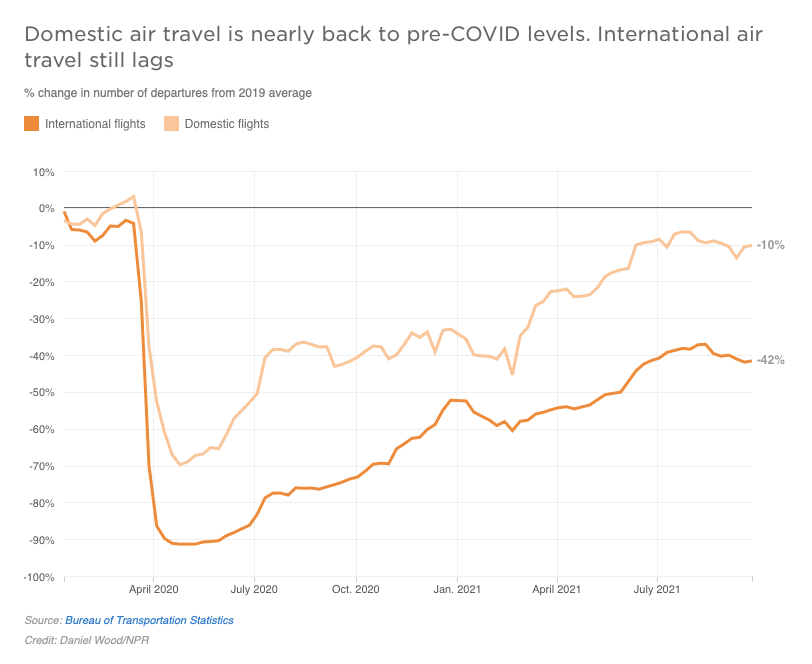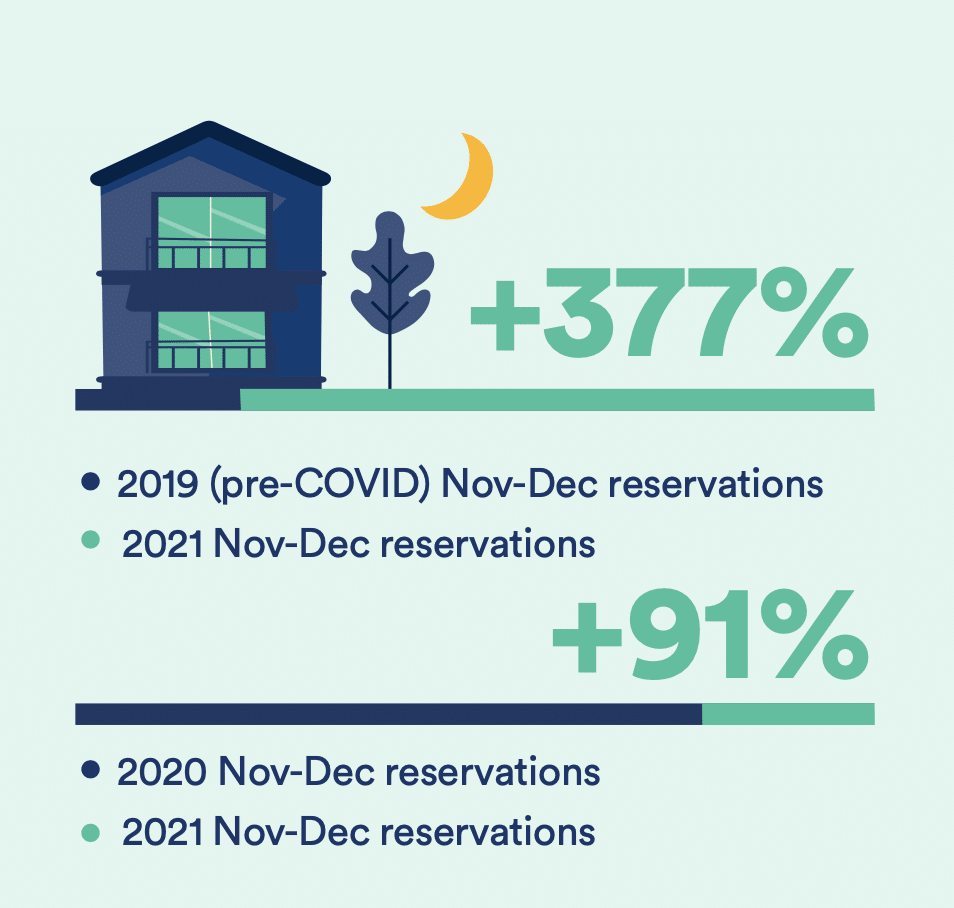When the COVID-19 pandemic struck the globe in early 2020, travel experts cast their predictions for the uncertain future of their industry. Some of these were off the mark—with air travel recovering to a better degree than many had predicted—yet others proved to be spot-on.
International Travel will rebound, but it will take time – Right
The pandemic’s immediate impact on international travel was severe, with global restrictions causing traveling to plummet to 90% lower than pre-COVID levels. However, there were clear signs of improvement after many countries re-opened their doors to international visitors, with international travel levels rising to roughly 55% lower than pre-COVID levels. The situation has further improved over time and is now almost 40% lower than pre-COVID levels.

Business travel might never recover – Wrong
The effects of pandemic-induced border closures on business travel were so sudden and so grave that there was widespread uncertainty over whether it would ever recover to pre-pandemic levels. After all, global business travel spending slumped by over a half during 2020, which would have been higher had it not been for the first few months before Coronavirus hit international travel. Nevertheless, the Global Business Travel Association (GBTA) released a report which forecasted a “full recovery” within four years, and as mentioned previously, business travel has already been accelerating since restrictions have been lifted.
When restrictions are eased, domestic travel will experience higher levels of growth – Right
Due to travelers being reluctant to return to the skies, many decided to take advantage of driving-distance holiday destinations. In January 2020, before news of COVID-19 emerged and planes were grounded, 7.9% of American trips were international. In May 2021, however, international trips had declined to 1.9% of all trips made by American travelers, reflecting their concerns about being exposed to the virus in enclosed spaces.
Increases in leisure travel will be short and modest in 2021 – Wrong
Despite the nervousness around exposure to the virus, there was still much pent-up demand throughout 2020 and into 2021. As a result, leisure travel recovered much faster than anticipated in 2021, aided by the trend towards domestic leisure travel. In a July 2021 article, Business Insider went as far as declaring that “leisure demand has passed ‘complete recovery’.

Travelers will be required to show proof of COVID-immunization to travel, if a vaccine is developed – Right
The development of a vaccine to treat COVID-19 was completed at a record pace, leading governments worldwide, such as Canada, to impose vaccination requirements for those wishing to enter the country. This is now a well-established practice across most countries.
The Chinese will be the first to resume international traveling – Wrong
When this prediction was made in April 2020, the Chinese people had their movement restricted since before the Chinese New Year, on January 25th. Since this was much earlier than any other country, it was assumed that they would be able to enjoy travel freedom again earlier than any other country. As it turns out, there is still a ban on outbound group and package travel in China, unlike most other countries in the world.




